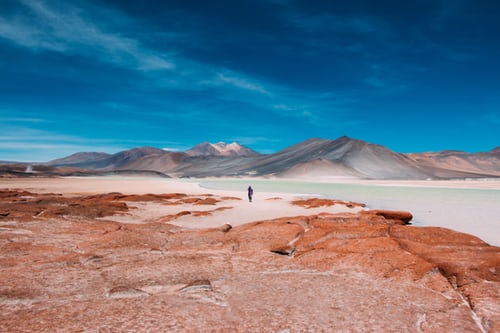The second biggest lithium producer in the world, SQM reported about its regrets on “a ruling by a Chilean environmental court” whereby the company “should be prosecutes” for using excessive water in the Atacama Desert.
SQM sent a statement to Reuters wherein it mentioned about its consideration on taking “further legal action” over the First Environmental Court’s finding wherein a complaint was upheld that was registered by local communities that skirt the area of SQM’s operations. The statement read:
“The company regrets this decision and remains convinced that its plan - which was meticulously evaluated by the competent authorities - safeguards the protection of the environment”.
“SQM is evaluating the range of options available to it before the law”.
With the court order, SQM would find its plan of expanding its “lithium carbonate production plant”, a project worth “$400 million”, in jeopardy. Water is a main requirement for the expansion plans of SQM as well as its peer, Albemarle. Both these companies are operating in Atacama’s salt flats, the “driest desert” in the world. It is from this place that over one third of the world’s lithium supply is sourced which goes into manufacturing batteries that “power electric vehicles”.
With the rapid growing demand for lithium, the question of Atacama desert’s capacity to sustain the same comes into play, as they sector also has to compete with “sprawling nearby copper mines, a booming tourism industry and indigenous communities”. According to Reuters:
“The court ruled that a compliance plan presented by SQM in response to a multi-year investigation by Chile´s SMA environmental regulator that found the miner had overdrawn lithium-rich brine was ‘insufficient’.”
The said plan depended on a “new online” monitoring system which would overlook the “extraction rates of brine” besides the plan also included the “shutting down” one of the freshwater wells of the company. The court informed that its verdict kept in mind the ecosystem of the desert besides the “high level of scientific uncertainty” when it comes to the water table behaviour in that region.
The court said SQM by no means could prove the measures it proposed to be capable of “containing and reducing or eliminating the negative effects generated by the breaches of the company”. As per the court, SQM needs to “resume its sanctioning of SQM for the original infractions” which could call for more than “$3 million” in fines, “the closure of operations or revocation of environmental permits”.
References:
reuters.com
SQM sent a statement to Reuters wherein it mentioned about its consideration on taking “further legal action” over the First Environmental Court’s finding wherein a complaint was upheld that was registered by local communities that skirt the area of SQM’s operations. The statement read:
“The company regrets this decision and remains convinced that its plan - which was meticulously evaluated by the competent authorities - safeguards the protection of the environment”.
“SQM is evaluating the range of options available to it before the law”.
With the court order, SQM would find its plan of expanding its “lithium carbonate production plant”, a project worth “$400 million”, in jeopardy. Water is a main requirement for the expansion plans of SQM as well as its peer, Albemarle. Both these companies are operating in Atacama’s salt flats, the “driest desert” in the world. It is from this place that over one third of the world’s lithium supply is sourced which goes into manufacturing batteries that “power electric vehicles”.
With the rapid growing demand for lithium, the question of Atacama desert’s capacity to sustain the same comes into play, as they sector also has to compete with “sprawling nearby copper mines, a booming tourism industry and indigenous communities”. According to Reuters:
“The court ruled that a compliance plan presented by SQM in response to a multi-year investigation by Chile´s SMA environmental regulator that found the miner had overdrawn lithium-rich brine was ‘insufficient’.”
The said plan depended on a “new online” monitoring system which would overlook the “extraction rates of brine” besides the plan also included the “shutting down” one of the freshwater wells of the company. The court informed that its verdict kept in mind the ecosystem of the desert besides the “high level of scientific uncertainty” when it comes to the water table behaviour in that region.
The court said SQM by no means could prove the measures it proposed to be capable of “containing and reducing or eliminating the negative effects generated by the breaches of the company”. As per the court, SQM needs to “resume its sanctioning of SQM for the original infractions” which could call for more than “$3 million” in fines, “the closure of operations or revocation of environmental permits”.
References:
reuters.com






